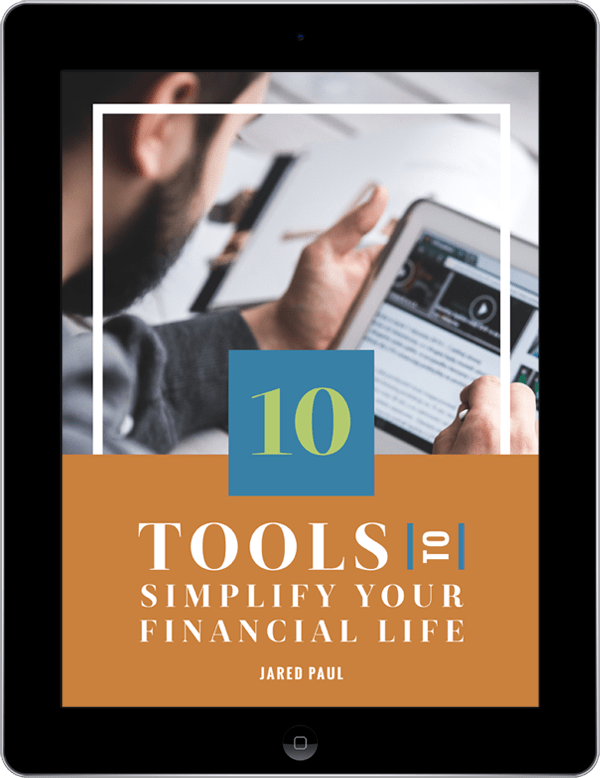Last week I wrote about the “Wealth-Building Lessons You Can Learn From Body Builders.”
If you didn’t check it out, you should pop back and take a look, it’s a quick read.
In that article, I discussed the importance of understanding what it takes to build great wealth. Both the commitment to the journey, and the sacrifices you’ll have to make.
But I also mentioned that you don’t have to set your sights on some incredibly lofty goal. There are many levels of wealth that you can obtain that will provide a great lifestyle, and they can be achieved without going “all-in.”
In this week’s post, I want to walk you through a list of strategies I think everyone should employ that will provide the most “bang-for-your-buck” when it comes to your effort.
The list encompasses what I believe to match the Pareto Principle (A.K.A. – The 80/20 Rule) of finance, giving you the most reward for your efforts.
So, be sure to start here before you get sucked down the rabbit’s hole of personal finance strategies.
THE 80/20 PRINCIPLES OF FINANCIAL ADVICE
Principle 1 – Don’t Budget, Do A Spending Analysis Instead
I’ve written about my disdain for budgeting. It just isn’t something I enjoy. But it doesn’t mean I don’t see the value in understanding where my money is going.
Having the knowledge of how much you are spending in different areas will empower you to make smarter decisions, and it can often provide an “ah-ha” moment of realization that gives you the ability to shift spending to better places.
To help make the process faster, you can use an account aggregation tool like Mint.com that will compile all of your accounts into one place, and breaking it down into categories. This will take away most of the heavy lifting of budgeting, and make it easy for you to quickly look through your spending/saving patters.
Principle 2 – Set Up Automatic Savings, And Increase It Over Time
Saving can be tough for a lot of people. Having a bunch of money and making a deliberate decision to move some of it into a savings account that you won’t touch just isn’t easy.
But, if you never see the money in the first place then you aren’t tempted to spend it.
This is why it can be incredibly helpful to set up automatic savings with your accounts.
One of the places you see this most often is with employer-sponsored retirement plans, like 401(k)s. You can set it up so that a portion of each paycheck will go directly into your retirement account without ever hitting your bank account.
It’s easy, and it creates a barrier between you and spending your hard-earned money.
But this same concept can be applied to savings accounts, investment accounts, emergency fund, and so on.
So, be sure to set up your accounts to automatically transfer a pre-determined amount into you accounts each month, and save yourself the hassle of having to remember to make the transfers manually.
Principle #3 – Focus On The Biggest Purchases And Don’t Sweat The Small Stuff
I wrote about this a while back in an article titled “How To Stop Worrying About Small Purchases By Focusing On The Right Things.”
The concept is pretty straight-forward. If you get the biggest purchases right – things like buying a home, a car, etc. – then the small purchases aren’t as significant.
For example, it is often discussed how your daily cup of coffee could be costing you big time over the course of your life. Experts will talk about how you could have taken that money, invested it and grown it over time.
Sure, but that could be said about almost every purchase you make.
On the other hand, if you work really hard to keep the cost of big things down, like a home, then you can instantly save more than those cups of coffee combined.
It’s exhausting second-guessing every cup of coffee you purchase. So, instead of doing that on the daily, make sure you focus really hard on making the best possible decisions on things like buying a home, a car, and any other major expenditure.
Principle #4 – When Investing, Buy Low-Cost Index Funds
When discussing personal finance, it almost always ends up turning into a conversation about investing. It’s the “sexy” part of finance, and it is what major media outlets push, constantly.
There is always some new wonder stock that everyone has to buy, or some product that will change your life.
The risk is getting sucked into one “great” investment after another, and spending a ton of your time researching these ideas as if you were an analyst on Wall Street.
Don’t do that.
For one, even the pros get it wrong a lot of the time. And you probably aren’t a “pro.”
Also, do you really want to be spending your free time pouring over analyst reviews and quarterly reports? I don’t.
By investing in low-cost passive investments, like index funds, you will be able to invest your money in a smart way that won’t take you forever to research. And by keeping your costs low, you’re doing yourself a huge favor!
[The 2 Steps To Cut Fees And Save Over $500k]
Save yourself the hassle (and the increased costs) and do the right thing…
Principle #5 – Invest In Yourself And Build Human Capital
As I just mentioned, it’s easy to get caught up in discussions on where to invest your money. But one area that often gets missed is investing in your own personal development.
One concept that is not talked about enough is the increasing of human capital.
The simplest way to describe human capital is that it’s your lifetime earnings potential.
If you plan to work for 40 years and you make $100,000/year, your human capital is $4 million (40 x $100,000 = $4 Million).
A great way to increase your financial situation is to increase this number. This can be through advanced education, degrees, certifications, designations, etc.
Be sure to research your field of work and see where you can be investing both time, effort, and money into increasing your own value.
After all, it’s a whole lot easier to save more money when you’re earning more money! 😉
STAYING FOCUSED
The key is to make sure you are doing enough to advance your financial situation, without burning yourself out and going off course.
Too many people try to do everything all at once, and soon stop doing anything.
It’s similar to people with weight-loss goals. Someone might decide it is time to begin going to the gym and get in shape, but then they try to go every day for 2 hours and quickly burn themselves out.
So, with your finances, instead of trying to tackle every area of personal finance all at once, get these main principles down pat, and then build from there.
After all, doing just a few things really well is better than doing a bunch of things poorly.
Capably Yours,
Jared















